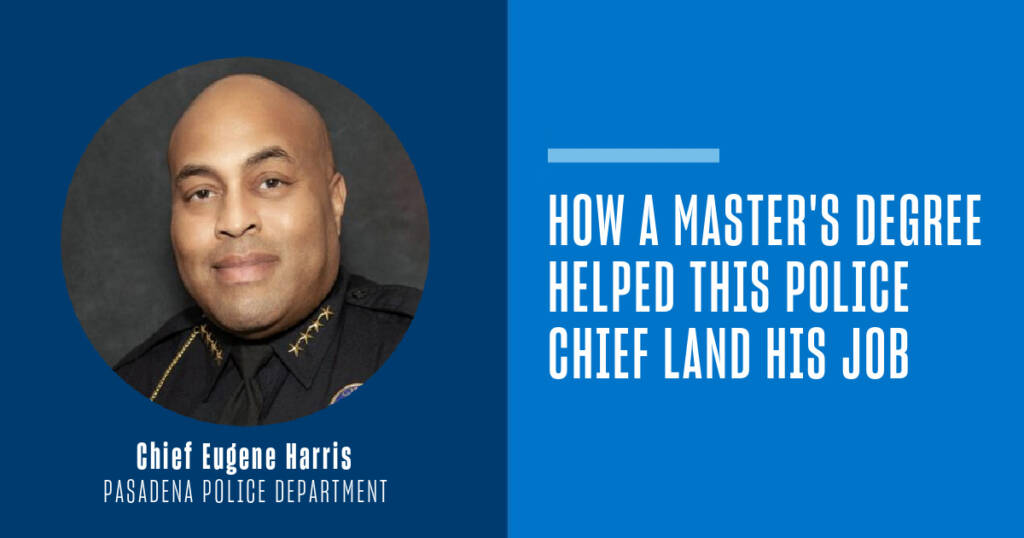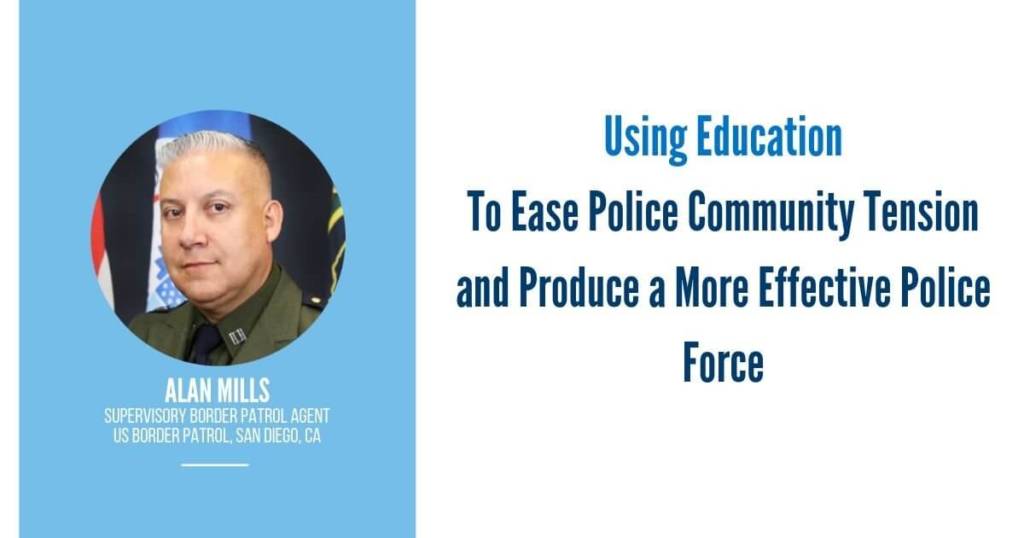The average law enforcement professional will experience 178 traumatic events throughout their career. Compare that to the two or three traumatic events the average person faces, and it’s clear: Officers endure nearly 90 times more trauma than the general population.
In today’s law enforcement environment, where challenges are constant and unrelenting, the imperative for departments to prioritize the mental and physical health of their staff members has never been more urgent. Stress, burnout, mental health struggles and suicide are not anomalies — they’re realities of the job for sworn and professional staff alike. These burdens can take a toll on your team’s resilience, performance, and their ability to protect and serve.
The resources listed below are a compilation of articles, podcasts, video presentations and more that can help law enforcement departments implement an officer wellness program, stay up to date on the newest innovations and approaches, and integrate new ideas that are working for other agencies across the country.
Articles, Reports & Books
“What constitutes a well-rounded wellness program?” (American Police Beat)
Dr. Cherylynn Lee, a police psychologist who works full-time for the Santa Barbara Sheriff’s Office, provides insight into what constitutes an effective wellness program versus one that merely checks a box.
“Trauma-Informed Leadership” (Police Chief Magazine)
Cathy Bustos, a retired police lieutenant from Texas and a mental health advocate, writes about mental and emotional challenges faced by law enforcement officers, highlighting the high suicide rates, trauma, and burnout within the profession. She also addresses the need for a shift in police department culture, advocating for trauma-informed leadership, better mental health resources, and education on resilience to ensure the well-being of officers.
“Officer wellness: An Ounce of Prevention may be Worth a Pound of Staffing” (Police1)
This article explores the high-stress environment officers face, which leads to significant mental health issues such as PTSD and depression, as well as physical health concerns like obesity. It also discusses recommendations to combat these issues, such as implementing industry-wide health standards, enhancing supervisor training to identify distress, promoting resiliency training, and utilizing mobile health apps.
“Mental Wellness Check-ins: What They Are and How They Help” (Lexipol)
This resource highlights the importance of proactive mental wellness check-ins for first responders, likening them to regular car maintenance. It also outlines a program with mandatory annual check-ins with a therapist to help manage stress and trauma. Confidential and preventive, the check-ins provide support before issues escalate. The program has proven successful in multiple departments, boosting the mental health and well-being of officers and staff.
“Public Safety Wellness Programs: Helping Employees Thrive” (Lexipol)
Retired Capt. Rex M. Scism, a 32-year law enforcement veteran and former director of research and development for the Missouri State Highway Patrol, addresses the mental health challenges faced by public safety workers and the importance of self-care. He highlights valuable resources, such as Employee Assistance Programs. The article also explores the benefits of peer support programs, which offer emotional assistance from colleagues who understand the unique challenges of the profession.
International Association of Chiefs of Police (IACP) Employee and Family Wellness Guide [PDF Download]
This comprehensive resource covers everything from financial literacy and discussing your job with your children to the impacts of sleep deprivation and the critical connection between food and stress.
Police Executive Research Forum (PERF) Report on Wellness Program Best Practices [PDF Download]
This report provides practical guidance for police agencies to enhance employee wellness programs, addressing physical, mental, and financial health, peer support and family involvement to build a healthier, more resilient workforce.
The POWER Manual: A Step-by-Step Guide to Improving Police Officer Wellness, Ethics and Resilience
This book emphasizes that a police officer’s true strength isn’t in the badge or tactical skills, but in POWER: Police Officer Wellness, Ethics and Resilience. Readers will discover practical, research-backed strategies to help law enforcement improve wellness, reinforce ethical values and build resilience both on and off duty. It emphasizes creating a personal plan for overall health, covering physical, cognitive, emotional, social and spiritual well-being. Co-authored by Dr. Konstantinos Papazoglou, a Yale postdoctoral scholar, and Dr. Daniel M. Blumberg, a clinical psychologist with over 30 years of experience with law enforcement, the book offers actionable steps for optimizing wellness and job performance. The cost of the book is about $22.
Mindfulness Toolkit for Law Enforcement [PDF Download]
The International Association of Chiefs of Police (IACP) offers a Law Enforcement Mindfulness Toolkit with easy-to-access meditation practices designed to promote wellness among officers. Regular mindfulness can help manage the stress and trauma law enforcement officers often face, improving stress management, focus, situational awareness and interpersonal skills for officers, civilian employees and their families.
Employing Mental Health Clinicians to Improve Police Outcomes
The article highlights the success of the Denver Police Department’s Co-Responder Program, which pairs law enforcement officers with licensed mental health clinicians to respond to calls involving mental health crises, substance use and co-occurring disorders. The program has expanded significantly, and similar initiatives are supported by the Bureau of Justice Assistance nationwide. You can hear the entire story on an episode of the Justice Today Podcast.
Podcasts
Officer Wellness: The Podcast with Retired Chief Brian Manley
When Brian Manley served as the chief of the Austin Police Department, employee health and wellness was a top priority. His commitment continues through this podcast, featuring interviews with law enforcement veterans and experts discussing critical aspects of officer health and resiliency. Previous guests have included retired officers, psychologists, authors and crisis management experts.
Hey Chaplain: The Police Wellness Podcast
The host of this podcast, Jared Altic, brings over 30 years of experience serving in the church, counseling military and law enforcement families. The podcast features interviews with a wide range of professionals, including dispatchers, federal agents, sheriffs, detectives and U.S. Marshals. Together, they share advice and insights aimed at fostering healthier law enforcement officers, both on the job and at home.
Blue Grit Radio: The Police Wellness, Leadership, Culture and Mindset Podcast
Created by Eric Tung, a Washington state police officer with over 16 years of experience and currently a patrol operations commander, the Blue Grit Podcast offers conversations and insights on health, wellness, organizational culture and leadership. Previous topics have covered why employers should prioritize stress management, how to strengthen the mind, body and spirit, navigating the ups and downs of police work and building a resilient mindset.
The 6th Pillar Podcast, hosted by retired Police Chief Neil Gang, is dedicated to first responders. It covers crucial topics such as suicide, organizational wellness and leadership. This podcast reflects that mission, bringing together leaders nationwide to drive meaningful change. Past episodes have addressed balancing accountability with compassion and distinguishing between PTSI and PTSD.
Mental health advocate Sean Conohan dedicated his podcast to breaking down the stigma surrounding mental illness in first responder professions. While the podcast concluded in June 2024, it leaves behind eight seasons of valuable episodes. Topics have included resilience through fitness and thought field therapy, featuring a diverse range of guests — from paramedics and firefighters to authors, healthcare professionals and law enforcement leaders.
First H.E.L.P. (Honor, Educate, Lead, Prevent)
This podcast brings together first responders and their families for both serious and humorous conversations about mental health. Hosted by Robyn Mikel, assistant program director for Red H.E.L.P., and Christy Lister, Illinois State Representative for Blue H.E.L.P., they team up to share the First H.E.L.P. story. Episodes have covered everything from how active listening can improve both your life and relationships, to the benefits of giving back to your community and how finances can impact overall mental health. Past guests have included psychologists, law enforcement professionals, a retired 911 dispatcher and the daughter of a police officer who died by suicide.
The Resiliency 1st Podcast offers valuable insights and tools to develop resilience and improve well-being. Experts share knowledge on various aspects of behavioral wellness, focusing on first responders and their families. Previous episodes cover topics such as goal-setting, the brain-gut health connection, managing emotions and their effects on relationships and substance abuse.
First Responder Wellness Podcast
This podcast, designed for first responders and their supervisors, focuses on mental health and wellness within their community. It explores topics such as the impact of leadership on employee well-being, the importance of peer support and shared experiences and the need for a cultural shift that prioritizes mental health. The show also highlights tools like sound meditation, outdoor activities and faith-based support systems to promote healing. Ultimately, it advocates for more programs and resources to address the unique mental health challenges first responders face.
Videos & Webinars
The Path to Police Officer Wellness
Police1 Editor-in-Chief Doug Wyllie interviews Dr. Mark Sherwood, naturopathic doctor and founder of Live4E, a company dedicated to helping individuals achieve inner peace through daily renewal of their physical, emotional, intellectual and spiritual well-being. In this video, Dr. Sherwood outlines four key areas essential for police officers to maintain strong mental and physical health.
Practices in Modern Policing: Officer Safety and Wellness
This video from the IACP covers essential topics such as the key components of a wellness program, ways departments can support their officers and what some agencies are doing to improve mental health and mindfulness in law enforcement.
Police Executive Research Forum: Supporting Officer Wellness
The Police Executive Research Forum hosted a five-part webinar series on officer safety and wellness, based on a study conducted in collaboration with the National Opinion Research Center (NORC) at the University of Chicago and funded by the National Institute of Justice. The study surveyed agencies about their wellness programs and officers about their mental and physical health. Each webinar episode features a brief presentation on the research findings followed by a panel of experts sharing their experiences in implementing wellness programs within their agencies.
Emotional Survival 2.0: Wellness Solutions for Today’s Law Enforcement Professional
This webinar explores the evolving challenges in law enforcement officer wellness and practical strategies to enhance resilience, performance and happiness. Building on the principles of Emotional Survival for Law Enforcement by co-host Dr. Kevin Gilmartin, the webinar explores new stresses officers face, updates in the revised edition, and practical strategies to enhance resilience and emotional well-being in today’s law enforcement landscape. The other co-host is Dr. David Black, founder and president of Cordico.
[RELATED] Lessons in Leadership: Leading from the Here and Now
Programs, Initiatives & Organizations
International Association of Chiefs of Police: Officer Safety & Wellness
The IACP offers a range of resources to support the safety, health and wellness of police officers, including mental health services, wellness support and line-of-duty death assistance.
Fraternal Order of Police Division of Wellness Services
This division of the Fraternal Order of Police (FOP) offers a range of wellness resources to its members, including educational materials, connections to wellness practitioners and guidance on all aspects of maintaining health and productivity. Resources available include a list of vetted and approved providers, officer wellness training courses, wellness tips and strategies, crisis hotlines and wellness surveys.
FBI National Academy Associates (NAA) Officer Safety & Wellness
This division of the FBI provides a variety of resources related to officer suicide and depression, including a three-day training session for first responders, details on upcoming events and conferences and a Comprehensive Officer Resilience Program.
Lexipol’s Cordico wellness solution provides on-demand, confidential wellness resources for personnel in high-stress occupations and their families, featuring self-assessments, expert content on over 60 topics and customizable agency-specific tools. The app also includes one-touch access to peer support, therapists, and chaplains, backed by exceptional customer service.
VALOR Officer Safety and Wellness Initiative
The Violence Against Law Enforcement Officers and Ensuring Officer Resilience and Survivability (VALOR) Initiative aims to enhance the immediate and long-term safety, wellness and resilience of our nation’s law enforcement officers. This initiative provides support through programs that focus on comprehensive officer safety, wellness, resilience and suicide prevention, among other critical topics.
U.S. Department of Justice: Officer Safety and Wellness Resources
The Department of Justice is dedicated to supporting the health and wellness of law enforcement officers, recognizing that their well-being is essential for safe communities. This collection includes various resources — articles, podcasts, infographics, training and more — created by the COPS Office and the Bureau of Justice Assistance. Covering topics from financial literacy to substance use disorders and suicide prevention, these materials aim to help law enforcement agencies build or enhance wellness programs for officers and their families.
National Suicide Awareness for Law Enforcement Agencies Program
This grant-funded program provides education and resources to law enforcement officers and agencies with a simple goal: to prevent suicides, raise awareness, and end the stigma around seeking help.
National Sheriffs’ Association
The National Sheriff’s Association offers a wealth of tools, resources and access to insightful reports and case studies, all highlighting the crucial importance of officer mental health and wellness.
Concerns of Police Survivors (C.O.P.S.) is a non-profit organization founded in 1984 to support the families and co-workers of law enforcement officers who have died in the line of duty, including deaths from felonious acts, accidents, illness and suicide. With over 80,000 members, C.O.P.S. offers a wide range of resources — including counseling, scholarships, peer support, camps and retreats — to help survivors rebuild their lives. The organization also provides training to law enforcement agencies on how to respond to the loss of an officer.
Founded by Richard Goerling — a retired police lieutenant, military veteran, and certified mindfulness trainer — Mindful Badge employs a team of trainers experienced in teaching mindfulness to first responders.
Conferences & Events
The IACP Officer Safety and Wellness Conference
This annual conference allows law enforcement professionals to gain insights from field experts on resources and best practices for creating comprehensive officer safety and wellness strategies. Attendees learn about building resilience, financial wellness, injuryprevention, peer support programs, physical fitness, nutrition, sleep deprivation, stress, mindfulness, suicide prevention and more.
This annual training event, organized by the National Officer Wellness Committee, showcases presentations on wellness topics delivered by nationally recognized speakers, expert panel discussions and hands-on wellness activities. Attendees will receive valuable tools and resources during training sessions. Previous topics have included the role of mentorship in enhancing overall officer wellness, the evolving dynamics of line-of-duty deaths, the significance of financial wellness and strategies for improving officer sleep and nutrition.
National Conference on Law Enforcement Wellness & Trauma
Hosted by Concerns of Police Survivors, the National Conference on Law Enforcement Wellness & Trauma is an annual event designed for active and retired law enforcement officers, as well as their spouses, significant others, family members, law enforcement leaders, peer support officers, mental health professionals, chaplains, dispatchers and federal officers. Previous topics have included developing effective mentorship programs, understanding how mental wellness starts at home and navigating burnout and negative behaviors.
The Mental Health & Wellness Policing Summit
A relatively new conference, the Mental Health & Wellness Policing Summit positions itself as the nation’s most comprehensive event for law enforcement across all job titles. Attendees include police officers and law enforcement leaders such as captains, lieutenants, commanders and deputy chiefs, as well as human resources personnel and recruitment staff. Topics have ranged from creating an environment that supports mental health and essential elements of an effective peer support program to mentoring for mental wellness and proactive approaches to preventing and managing PTSD.
Hosted by Lexipol and other partners, First Responder Wellness Week is a dedicated time to provide public safety personnel with resources, support and a sense of community to help them thrive in their demanding careers. Each day focuses on a different wellness topic, offering videos, webinars, articles and podcasts to address the unique physical and mental health challenges faced by first responders. The week encourages individuals and agencies to set wellness goals and promote overall health, aiming to help everyone become “Stronger Every Day.”






